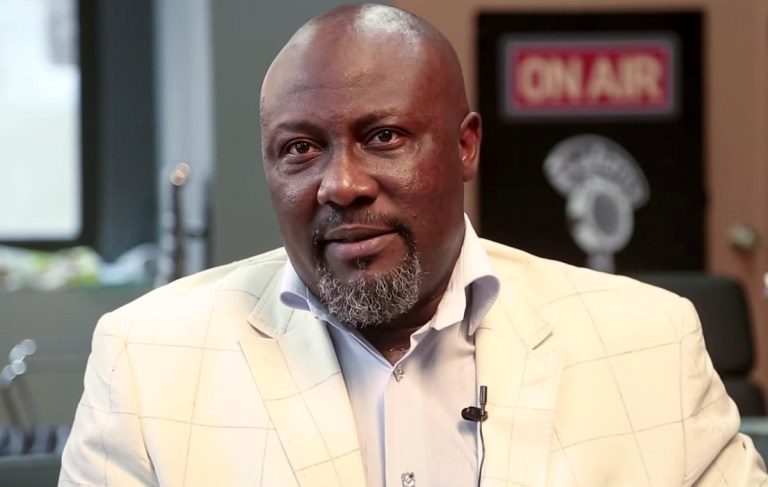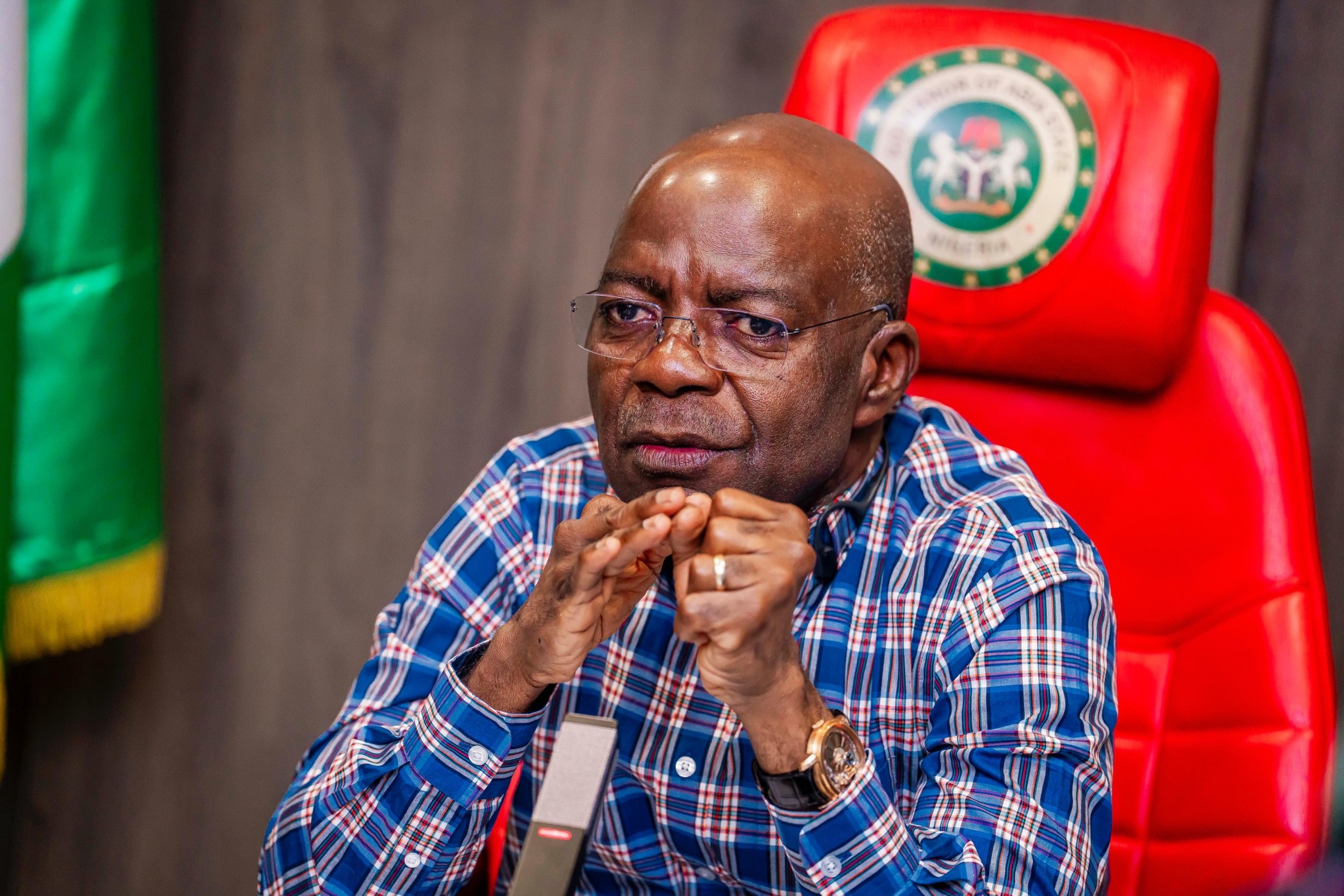By Tunji Olaopa
Lately, and in keeping faith with my research commitments, I had posed for myself the research question: what is that one most significant threat to the government bureaucracy, whether you call it the civil service, public service or the public administration system; a threat to it as the veritable back-end engine room that governments rely on to deliver on their promises to the people and to fulfill development vision and programmes commitments in a democracy? That one threat that keeps recurring, based on my investigation, is significantly disinformation or misinformation a la fake news; the whole post-truth alacrity and the diminution of objective facts in favour of sentimentalism and emotion, and its backdrop of expanding global populism in politics. Consequently and lately, I have been looking at such subjects as artificial intelligence, big data and data science as policy intelligence, decision science, open government partnership, freedom of information policy, privacy in the dynamics of internet and social media governance, the Gen Z prospects as the workforce in the public service emerging future frontiers, and I can go on and on.
Indeed, it has become self-evident, according to Joseph Schumpeter, that the bureaucracy constitutes an inevitable complement to the success of democratic governance anywhere in the world. What is not evident is that there is a lot of conditions that intervene and interfere in the modern world in undermining the significant relationship that ought to hold between democratic governance and the bureaucracy. In other words, it is not automatic that the bureaucratic machinery and mechanisms of government will backstop the evolution of good governance. Indeed, many high-performing nations have witnessed significant transformation despite a not too remarkable, regarded, competent and a therefore heavily politicized civil service. Be that as it may, one key challenge that public administration system and the bureaucracy has always faced since its emergence in time is the increasing complexities of the human society arising from scientific and technological innovation and diversities of all types. For instance, the increasing trajectory of human population provided a complicated phenomenon that tasked the capacity of the bureaucracy to manage the dynamics of policy design and implementation that cater for the welfare of the citizens in government development planning and the national transformation process.
In contemporary times, the challenges have become even more complex and perplexing such that bureaucracies across the world are struggling to make sense of the events that are now shaping the world. Scholars of geopolitics and international affairs are now designating the world as a VUCA—vulnerable, uncertain, complex and ambiguous—environment that is assailed by polycrisis. A polycrisis refers to the capacity of a crisis to morph into a complex form that draws on various other contingent but problematic issues. Climate change is a good example of how a crisis could become aggravated into a polycrisis. As a crisis on its own, the climate change issue references how human activities, especially the burning of fossil fuels, have undermined the ecological integrity of the earth. However, environmental degradation is not just that. It possesses the capacity to interconnect with and aggravate other critical issues to produce biodiversity loss, governance and infrastructural deficits, early warning failures, agricultural loss, pandemics, and finally civil unrests. This is the way a polycrisis manifests. And public bureaucracies are supposed to serve as the middle point of intervention between citizens and polycrisis like climate change, especially in terms of policy designs that are sufficiently forward-looking in ways that alleviate how these crises affect their lives.
In other words, the public bureaucracies are supposed to serve as the government’s instrument for making democratic governance a reality despite the scourges of complex polycrisis. Unfortunately, even the democratic experiment has generated its own fundamental challenge that complicates the capacity of the bureaucracy to complement a democratic state and its capacity to deliver democratic governance. What I mean to say is that the unraveling of democracy in contemporary times is made more complicated by technological innovation and the revolution in telecommunication. The emergence of new technologies, digital dynamics and the new media have raised the challenges of the relationship between the government, citizens and policy dynamics.
At the core of this challenge is the dynamics of the social media increasing dominant influence in shaping knowledge formation in society and the citizens expectations from governments in the information age. Or more precisely, social media serves as the mechanism that fuels the danger of post-truth—a contemporary manifestation where facts are manipulated in ways that undermine reason and promotes sentimental biases and political prejudices, especially in public opinion. At a most critical level, the social media constitutes a most fundamental mechanism by which the government, its apparatuses and the citizenry can facilitate and strengthen strategic communication that could consolidate democratic governance. Today, it is easy for the citizens to react in real time to government’s policies and decisions on issues that affect them. It is also easier for the government to reach the citizens and provide justifications for matters of state. Indeed, in an effort to modernize its governance processes, many governments across the world have deployed digital technologies and the social media to sign on to the open government initiative that is predicated on transparency and accountability in how governments relate the inner processes of policies to the citizens. This has gone a long way not only to open up the working of bureaucratic structures and processes to the democratic scrutiny of the citizens, but has also made governments more legitimate in the eyes of their citizens.
However, the dynamics of information on social media is not as seamless as I have presented above. To the extent that information is crucial both for the dynamics of service delivery to the citizens and the management of democratic communication, the social media serves a most fundamental purpose that sustains political and democratic stability.
Unfortunately, the social media is a double-edged sword. It cuts at the idea of the public good both ways, negatively and positively. At its best, social media offers the space and opportunity for the continuing adjustment of the social contract that promises betterment for all citizens. At its worst, it demonstrates the most terrible features of mass hysteria, especially in terms of lack of understanding and reflection on government policies and processes.
Indeed, the ideal of the open society must be managed through the deployment of information to navigate the perils of authoritarian government. Claude Shannon, the American mathematician, insists that “information is the resolution of uncertainty.” And he is right. However, information is power to the extent that it can be manipulated and distorted to suit purposes and objectives that are less than wholesome in political and bureaucratic terms. This is the essence of fake news; the dynamics of misinformation and disinformation. This is exactly the message Edward de Bono, the Maltese physician, was trying to convey: “There’s a danger in the internet and social media. The notion that information is enough, that more and more information is enough, that you don’t have to think, you just have to get more information—the more it gets very dangerous.” While misinformation is getting the facts wrong, disinformation is an act arising from a deliberate distortion of the facts.
How does the social media and the danger of disinformation work within a postcolonial context of democratic governance and bureaucratic responsibility like Nigeria? This is a key question that links the social media and its utility to the larger issues of nation-building, development administration and governance. How, for instance, does disinformation compromise the capacity of the bureaucracy in Nigeria to deliver optimal functionality that backstops the government’s search for performance and productivity? In a country as heterogeneous and plurally divisive as Nigeria, the feature of the bureaucracy as a neutral arbiter of policy design and implementation becomes very cogent. A democratic government does not want to be perceived as being favorable to one ethnic or religious groups over the others. In other words, the bureaucracy is supposed to act as the mechanism by which the government reachs all ethnic constituencies with the dividends of good governance.
Disinformation erodes the capacity of Nigerians to relate with the bureaucracy as an apparatus that is unbiased and efficient. In other words, apart from the increasing distrust that millions of Nigerians have against the civil service as a result of many years of terrible experiences—at the hand of the police, tax officials, licensing office, immigration and custom officials, ministries, departments and agencies, etc.—the social media has now provided a space for the explosion of disaffection against the public service. And this constitutes the hotbed for sowing misinformation and disinformation that further undermines whatever reform gains the civil service might be enjoying.
One way to see this, within the Nigerian context, is to connect the non-optimal performance of the bureaucracy with the spread of misinformation, for example. This is significant because the bureaucracy is the focal point of government’s governance and policy frameworks upon which the well-being of Nigerians is grounded. In Nigeria, and for over six decades, Nigeria has been struggling with national integration that is conditioned by a lack of development strategy that would have united Nigerians around infrastructural development and the Nigeria Project. To concede, consecutive Nigerian governments have ardently pushed administrative and governance reforms that have kept the performance and productivity of the civil service in focus. However, the civil service is still much less than what it takes to be a world-class institution that is efficiently and effectively meeting the needs of Nigerians. Misinformation and disinformation spreads within the cracks of inefficiency of the public service. Given that Nigeria is heterogeneous and politically combustible, the political intrigues and shenanigans play on the dynamics of fake news ecosystem to undermine the government of the day, its public service apparatuses and its governance architecture.
On the other hand, however, and quite unfortunately, fake news and disinformation might also become an instrument in the hand of the civil service itself, in terms of deflecting attention away from its bureaucratic burden that has undermined national development. This seems logical given that the civil service in Nigeria, for instance, and in many states across the world, has become a great rock in the tideline—the euphemism for saying it has been taken over by a bureaucratic culture that stifles efficiency and effectiveness, and undermined performance and productivity. And given the current discourse on the capacity of the civil service to reform itself, it would seem pragmatic for the civil service to buy into the fake news ecosystem as a strategy.
In the long run, the fake news ecosystem constitutes another layer of institutional burden that aggravates the predicament of public administration in postcolonial Nigeria. It has become a vicious circle in the sense that the digital and media technologies and the new media, especially the social media, further compromise the bureaucracy’s participation in the entrenchment of underdevelopment in Nigeria. When disinformation and misinformation spreads, it serves as the vector of the ineffectiveness of the public service in the first place. A different discussion about fake news will emerge if, in the first place, the civil and public service are delivering the dividends of democratic governance. My mission therefore, as next step, is to initiate a multi-level conversation to underpin a seminal interrogation of what all of this conjunction of threat, challenge sand opportunities presents and portends as policy intelligence and windows for innovation; one that the administrative leadership in the saddle should take on as we position the civil service and the entire public administration system to backstop Nigeria’s journey through the stormy weather of the fourth and fifth industrial revolutions that are already here with us, and unfolding relentlessly.
*Olaopa, Professor of Public Administration, is the Chairman, Federal Civil Service Commission, Abuja .


